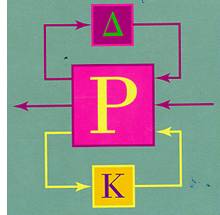
|
|
||||||||
Flying in the Face of Uncertainty
When you take a shower, the first task is usually to adjust the water temperature to your liking. If, however, there is a significant delay between making the adjustment and feeling a difference in the water temperature, you can get into a seemingly endless cycle of adjustments which never end in producing the temperature you want. This is an example of 'feedback control', which has been the subject of research within the Control Group for a number of years. Not that their interest is in the relatively simple task of making your plumbing more efficient, but rather in generating mathematical theories that can be used for efficient control of much more complicated systems, such as aircraft and internal combustion engines.
 The
purpose of feedback controllers is to achieve system behaviour that is
insensitive to both disturbances that may affect the system and to uncertainty
in the system itself. For example, an aircraft is affected by atmospheric
disturbances but the effect is modulated by use of the control surfaces
(flaps etc). However the behaviour of feedback systems can be sensitive
to the exact dynamics of the system being controlled and mathematical
models of any system will have limited accuracy. Hence the subject of
'robust control' was developed to analyse the tolerance of the controlled
behaviour to uncertainty in the system dynamics.
The
purpose of feedback controllers is to achieve system behaviour that is
insensitive to both disturbances that may affect the system and to uncertainty
in the system itself. For example, an aircraft is affected by atmospheric
disturbances but the effect is modulated by use of the control surfaces
(flaps etc). However the behaviour of feedback systems can be sensitive
to the exact dynamics of the system being controlled and mathematical
models of any system will have limited accuracy. Hence the subject of
'robust control' was developed to analyse the tolerance of the controlled
behaviour to uncertainty in the system dynamics.
